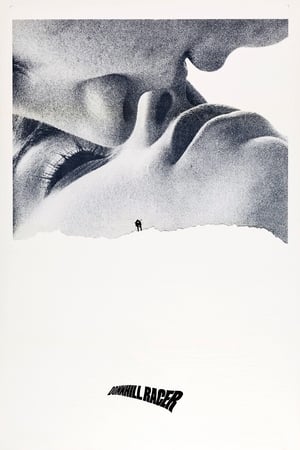
Downhill Racer
_**The best (and only) major film about downhill ski racing**_ Robert Redford was in his prime as David Chappellet, a taciturn loner from Colorado, who competes with an underdog American team for Olympic gold in Europe. Gene Hackman co-stars as the coach who tries to temper Chappellet's narcissistic and reckless drive for glory. "Downhill Racer" came out late in 1969 hot on the heels of Redford's success with "Butch Cassidy and the Sundance Kid." Unfortunately it wasn't marketed properly and failed at the box office, but don't let that deter you 'cause this is a great film well worthy of your time. Although the movie is from '69 and therefore has obvious dated aspects, "Downhill Racer" was very innovative in it's time and holds up well to this day. In fact, aside from the ski paraphernalia & styles, I don't find the film dated at all. It somehow has a fresh quality and plays out like a docudrama similar to, say, "Saving Private Ryan," which was made nigh three decades later(!). "Downhill Racer" is reminiscent of 1966's "The Blue Max" in that both films are about an unlikable loner who is ruthlessly ambitious in his area of skill and functions as a fish out of water in the social circles to which he's thrust. It goes without saying that if you liked "The Blue Max" you'll probably like this one too. Both rank with my favorite films of all time. Downhill racing is an insanely hazardous sport in that the skier can reach speeds of 80-90 mph(!). Needless to say, one bad fall could take you out for life. Downhill is also an extremely individualistic sport, which is well pointed out in the story when a teammate criticizes Chappellet for not being a team player and another guy responds, "Well, it isn't exactly a team sport, is it?" Needless to say, it takes a very certain kind of individual to be successful at downhill -- someone who's ultra-daring and bold; someone with a wild, reckless edge balanced by the necessary discipline to train and compete. Redford effectively plays such a person here. He rises up in the ranks to become the American team's only true hopeful; the coach attempts to somewhat keep him under reigns and criticizes his individualism and recklessness even while he knows these are the very qualities that makes him a winner. Throughout the picture Chappellet and the coach act like they don't like each other at all, and it's true because Chappellet is a loner in the truest sense, but ultimately the coach is squarely on the young racer's side: When it comes time for the vital Olympic run the coach looks into Chappellet's eyes and confidently states, "You can win this." Take note of the stark contrast of Chappellet's plain hometown in Colorado and the glitz of the European ski resorts where he races. Also contrasted is Chappellet's throw-away hometown girl ("Do ya have some more of that gum") and the glamorous self-absorbed babe he hooks up with in Europe (Camilla Sparv of "Mackenna's Gold" fame); she gives him a good taste of his own bad self, if you know what I mean. Also of interest is his 'relationship' with his distant father, a simple country man who doesn't understand his son's preoccupation with skiing and the lack of financial gain thereof. While watching, I couldn't help but think of Bill Johnson, the unlikely downhill gold medal winner for the USA in the '84 Olympics. Like Chappellet he was cocky & reckless and irked the European snobs with his bold predictions of Olympic victory. I have no doubt that "Downhill Racer" was one of Bill's favorite films. Unfortunately Mr. Johnson staged an improbable comeback bid for the 2002 Olympics that ended abruptly with a horrible downhill crash in March, 2001, leaving him permanently brain-damaged and in need of constant care. How the mighty have fallen! One cavil I have with "Downhill Racer" is that Redford is playing a person in his early 20s while he was 32 years-old during filming and looks it. But this is just nitpicking. Besides, Redford looks great at 32 or any age (and I say that with a staunch record of heterosexuality). The film runs 1 hour, 41 minutes.
